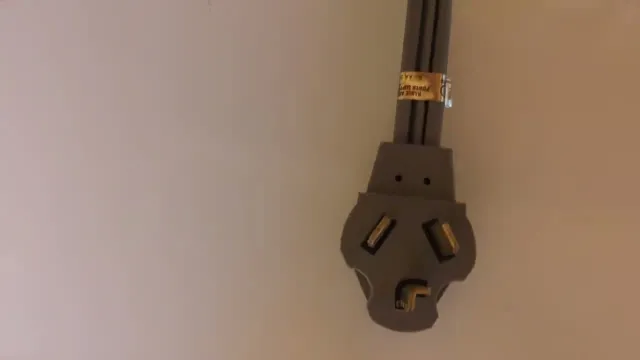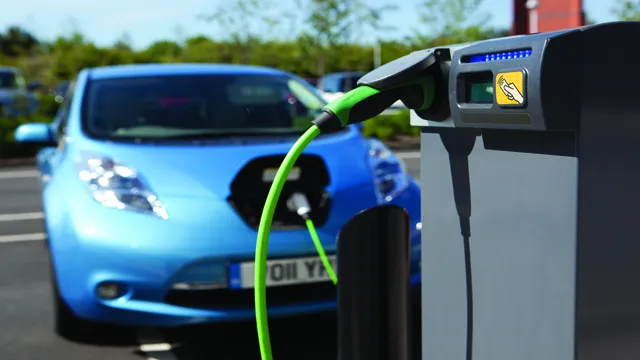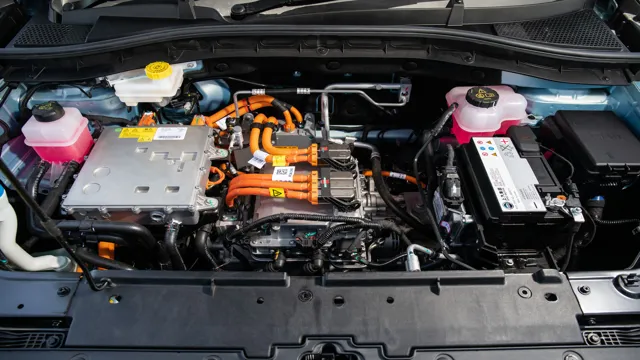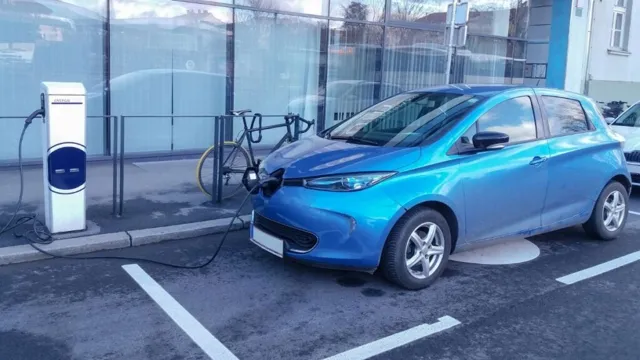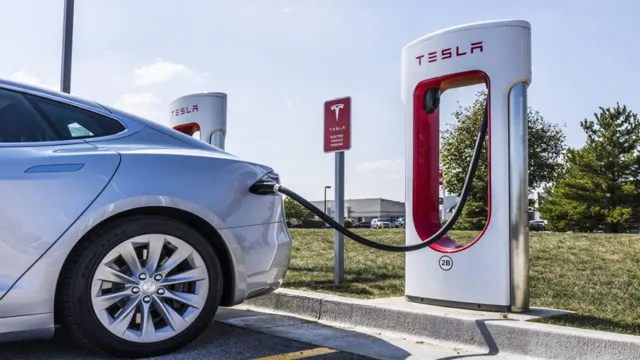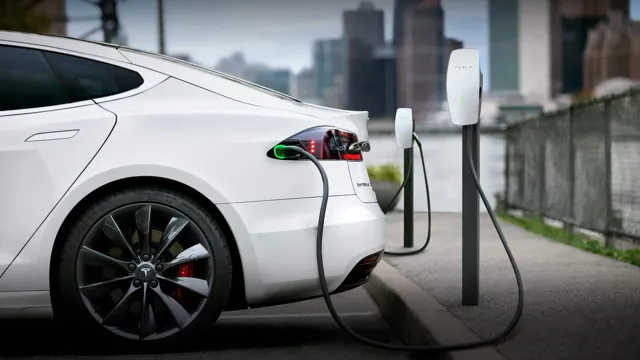Exploring the Possibility: Can you Charge Your EV Using Your Dryer Outlet?
You’re excited about joining the ranks of electric vehicle (EV) owners, but you’re unsure about where to charge it. Sure, there are public charging stations, but what if you want the convenience of charging at home? And what if you don’t have a dedicated EV charging station already installed in your garage? Well, the good news is that you might be able to use your existing dryer outlet to charge your EV. Yes, you read that right.
Your trusty old dryer outlet could be repurposed to fuel your clean energy ride. Of course, before you start plugging in your EV with any old cord and adapter, you should know the safety and technical considerations involved. For example, you’ll need to make sure your outlet can handle the power requirements of your particular EV and that you’re using the right type of cord and plug.
But as long as you follow common sense guidelines and get the right gear, it’s absolutely possible to use your dryer outlet to charge your EV. This solution can be especially appealing if you’re not able to install a dedicated charging station in your home. Plus, it can save you money on the cost of equipment and installation.
In short, repurposing your dryer outlet as an EV charging station is a smart and practical solution for EV owners who want to charge at home.
Understanding Dryer Outlets
If you’re an EV owner, you may be wondering whether you can use your dryer outlet to charge your vehicle. The answer is not as straightforward as you might expect. Dryer outlets come in different voltages, and EVs require 240-volt outlets for charging.
While some dryer outlets are indeed 240 volts, others are 120 volts, which will not be adequate to charge your vehicle. Additionally, even if your dryer outlet is 240 volts, it may not be compatible with your EV’s charging system. Therefore, you’ll need to verify the type of outlet you have and its compatibility with your electric vehicle before attempting to use it for charging.
It’s also important to note that EVs require a different outlet and wiring than what is typically used for dryers, so you should seek the help of a licensed electrician to install the appropriate outlet and wiring. So, in short, while you may be able to use your dryer outlet for EV charging, it’s not a straightforward solution, and professional assistance is recommended.
Different Types of Dryer Outlets
Dryer outlets come in different types, and understanding each type is essential in ensuring that you choose the right outlet for your dryer. The most common types of dryer outlets are the 3-prong and 4-prong outlets. The 3-prong outlet is an older version that uses two hot wires and one neutral wire, which means there is no separate ground wire.
Meanwhile, the 4-prong outlet has an additional ground wire, making it safer and more efficient. It’s important to note that the National Electric Code requires new dryer outlets to be 4-prong, so if you’re installing a new outlet, it’s best to opt for a 4-prong outlet. It’s also worth noting that different dryer models may require different types of outlets, so be sure to check your dryer’s instruction manual for the appropriate outlet type.
Overall, understanding dryer outlets is crucial in ensuring safety, efficiency, and compatibility with your dryer.
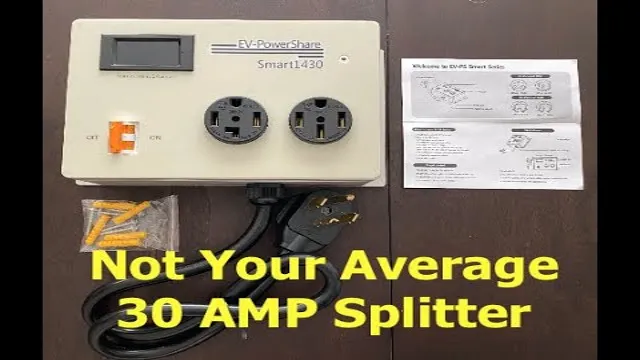
Capacity of Dryer Outlets
When it comes to understanding dryer outlets, it’s important to know what kind of outlet you have and what its capacity is. Most modern dryer outlets are either 3-prong or 4-prong, with the latter being the most common. The capacity of a dryer outlet refers to the amount of power it can deliver to your appliance.
This is measured in amps, with most dryer outlets being either 30 or 50 amps. It’s important to note that using an outlet with insufficient capacity can result in damage to your dryer or even a fire hazard. You should always consult a licensed electrician to ensure your dryer outlet is safely and correctly installed.
By knowing the capacity of your dryer outlet and ensuring it’s installed properly, you can keep your appliance functioning safely and efficiently.
Charging Your EV with a Dryer Outlet
If you own an Electric Vehicle (EV), you might be wondering if you can use your dryer outlet to charge it. The short answer is yes, but there are some important factors to consider. First and foremost, your dryer outlet must be the proper voltage and amperage required for your EV.
Most dryers use a 240-volt outlet with a high amperage rating, which can provide the necessary power to charge your EV. However, it’s essential to ensure that your EV’s charging cable matches the wiring of your dryer outlet. Not doing so can lead to a fire hazard or damage to your car’s battery.
Additionally, you may need to install a specialized EV adapter to connect to your dryer outlet safely. Suppose you’re uncertain or inexperienced with electrical work. In that case, it’s always best to consult a licensed technician to ensure your safety and proper installation.
Overall, using your dryer outlet to charge your EV is possible, but it requires careful consideration and specific equipment to do safely and effectively.
Steps to Charging Your EV with a Dryer Outlet
If you own an electric vehicle but don’t have access to a Level 2 charging station, no worries! You can still charge your car using your dryer outlet. The first step is to ensure that the outlet is a 240-volt, NEMA 14-30 outlet that can handle 30 amps. Next, you’ll need to purchase a Level 2 EVSE (electric vehicle supply equipment) that is compatible with your car and can handle 240-volt charging.
Connect the EVSE to your dryer outlet using a NEMA 14-30 adapter, and then plug the EVSE into your car. Make sure to follow all safety instructions provided with the EVSE to avoid any accidents. Charging your electric vehicle with a dryer outlet may take longer than using a Level 2 charging station, but it’s a simple and convenient solution if you don’t have access to a dedicated charging station.
Benefits and Limitations of Using a Dryer Outlet
If you’re looking for a convenient way to charge your electric vehicle, using a dryer outlet can seem like the perfect solution. One of the main benefits of using a dryer outlet is that it already exists in most homes, which means you don’t have to install a separate charging station. Plus, dryer outlets typically have a high power output, making them capable of charging your EV quickly.
However, there are also some limitations to using a dryer outlet for EV charging. For example, the outlet may not be compatible with all types of EVs, and it may not provide the same level of safety and convenience as a dedicated charging station. Additionally, if you use the outlet frequently for EV charging, it could lead to increased wear and tear on the outlet and potentially even cause electrical fires.
Despite these limitations, using a dryer outlet can still be a viable option for EV owners looking for a cost-effective and convenient way to charge their vehicles.
Safety Tips and Precautions to Follow
If you’re planning on charging your electric vehicle (EV) at home with a dryer outlet, there are some key safety tips and precautions you’ll want to keep in mind. First and foremost, it’s essential to make sure your outlet is properly wired to handle the amount of power needed to charge your EV. This means running a separate circuit with the correct amperage and voltage ratings, and potentially upgrading your existing wiring if necessary.
You’ll also want to use a high-quality EV charging cable and be mindful of the charging rate, as charging too quickly can create excess heat and potentially cause damage. Finally, always monitor your charging process closely and be sure to unplug your vehicle once charging is complete to avoid overcharging or damaging your battery. By following these simple guidelines, you can safely and efficiently charge your EV at home using a dryer outlet.
Alternatives to Using a Dryer Outlet
If you’re wondering whether you can use your dryer outlet to charge your EV, the answer is typically no. Dryer outlets are not designed to handle the high current required to charge an electric vehicle. However, there are several alternatives to consider.
The most common option is to have a dedicated circuit installed specifically for your EV charging needs. This can involve running wiring from your electrical panel to a location where you can plug in your charger. Another option is to use a standard 120-volt outlet, but keep in mind that this will result in slower charging times.
If you’re looking for a faster charging solution, consider installing a Level 2 EV charging station, which will require a 240-volt outlet like those typically found in garages or workshops. While it may be tempting to use your dryer outlet for charging your EV, it’s always safest to consult with a licensed electrician to ensure that your charging station is properly installed and up to code.
Other Charging Options for Your EV
When it comes to charging your electric vehicle, there are plenty of options out there that don’t involve using a dryer outlet. Some popular alternatives include using a standard 120-volt wall outlet, investing in a Level 2 charging station, or utilizing public charging infrastructure. While a 120-volt outlet may take longer to charge your EV, it’s a convenient option if you have access to an outlet that’s close to where you park.
Level 2 charging stations offer faster charging speeds and can be installed at home or in a commercial location. Public charging infrastructure, such as charging stations at shopping centers or rest areas, can be very convenient for longer trips. Overall, it’s important to consider your charging needs and the charging options available to you before making a decision.
Pros and Cons of Different Charging Options
When it comes to charging your electric vehicle, there are a variety of options to consider if you don’t have access to a dryer outlet. Some alternatives include using a standard 120-volt outlet, upgrading to a 240-volt outlet, or investing in a dedicated EV charging station. Each option has its pros and cons.
Using a standard outlet is the most convenient option, as it is available in most homes, but it’s also the slowest. It can take up to several days to fully charge your car. Upgrading to a 240-volt outlet will decrease charging times significantly, allowing you to charge your car in a matter of hours.
However, installation can be costly, and you’ll need a professional to install it. A dedicated EV charging station is the fastest option, allowing you to charge your car in just a few hours. These stations can be expensive upfront, but some utilities offer rebates to offset the cost.
Overall, the best charging option for you will depend on your lifestyle and budget. Don’t forget to consider factors such as installation costs, charging times, and safety features before making a decision.
Conclusion
In conclusion, while it may seem like a convenient solution to use your dryer outlet to charge your electric vehicle, it’s important to consider the safety risks involved. Dryer outlets are designed for high voltage and amperage, which can pose a serious fire hazard if not properly managed. It’s always best to consult with a licensed electrician and install a dedicated EV charging station for peace of mind and efficient charging.
Remember, you want to power your car, not your pants!”
FAQs
Can I safely charge my electric vehicle using my dryer outlet?
No, it is not safe to use your dryer outlet to charge your electric vehicle. Dryer outlets are designed for high voltage and amperage loads, but they are not rated for continuous use. You could damage your outlet or even start a fire by using it for EV charging.
What types of outlets can I use to charge my EV at home?
There are several types of outlets that are suitable for EV charging, including NEMA 14-50 (240V), NEMA 6-50 (240V), and NEMA 5-20 (120V). The specific type you need will depend on your vehicle’s charging requirements and the availability of electrical service in your home.
Can I install an electric vehicle charging station myself?
While it is possible to install an EV charging station yourself, it is not recommended unless you have significant experience with electrical work. EV charging equipment requires special wiring and safety features to ensure proper operation and to avoid electrical hazards. It is best to hire a licensed electrician to perform the installation.
How long does it take to charge an electric vehicle using a home charging station?
The length of time required to charge an electric vehicle will vary depending on the type of EV, the size of the battery, and the charging speed of the equipment. In general, it can take anywhere from a few hours to overnight to fully charge an electric vehicle using a home charging station.

